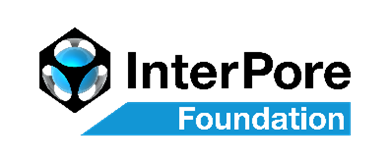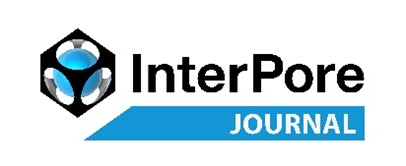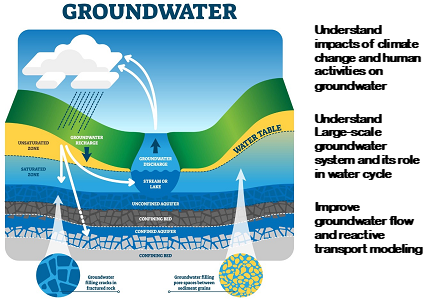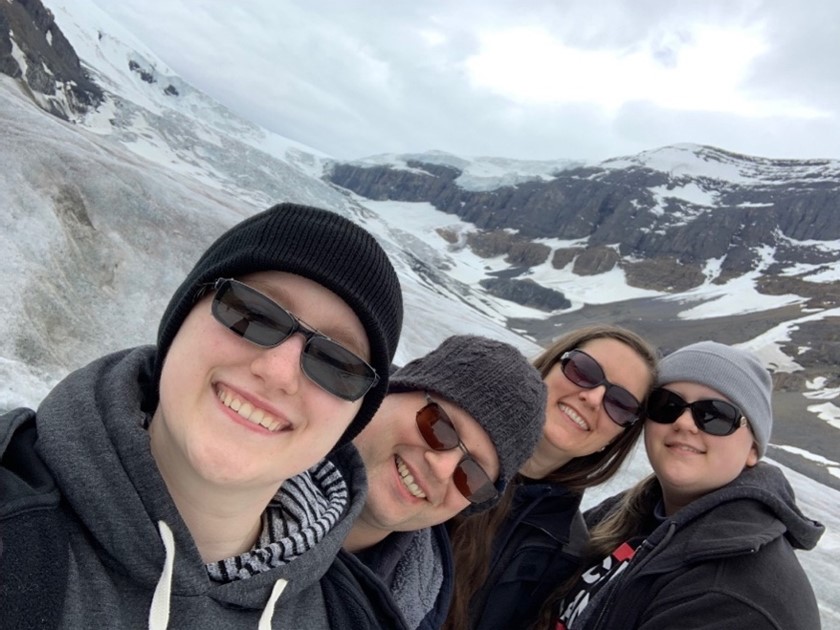| |
In this Issue:
-
From the Section President: Building Community
-
Sister Organizations: Interpore
-
Monthly Technical Committee: Groundwater
-
Fellows Speak: Pat Reed
-
International Groundwater Conference: Thomas Harter
- Information and Links
|
| |
|
| |
From the Hydrology Section President - John Selker: Building Community
|
| |
|
| |
|
|
|
|
|
| |
The Earth spins, the sun shines, and tides return, but pretty much everything else takes the hard work of teams. Mostly invisible.
Think of the AGU23 meeting: sessions had titles, rooms, organized series of talks and posters, coffee was served. The meeting date and venue were set a decade ago and planning has been active for that entire period. The coffee you drank cost $60/liter. The whole community had to find the hard-earned funds to make this event possible – thanks - the coffee helped! We live in a world of gifts from people who have been planning for our needs.
|
|
|
| |
|
| |
|
|
|
|
|
| |
How can you participate? So many opportunities! Look to the last Newsletter for some cool new programs in the section - here I would like to emphasize organizing community events.
Small meetings and workshops build networks, skills, and research skills. One of my favorite events is the once-every-three-years Cargese Summer School for Hydrogeophysics, taking place 10-21 June, in Corsica, France. Organized by the Univeristy of Rennes, this meeting brings 90 PhD students together with 30 faculty to explore the deepest issues in subsurface hydrology, and to build bonds with the people who will make up their peer-group for their entire careers (photos shown are from past Cargese Summer Schools). This year’s
|
|
|
| |
|
| |
|
|
|
|
|
| |
theme links subsurface flow to life on earth. The NSF has provided funding for 10 students from the USA to take part in this event – PLEASE make students aware of this once-in-a-PhD opportunity!
Consider what you and your colleagues could share with the community: a workshop, small meeting, field trip. The Hydrology Section is here to help – we will liaison with the AGU, we will advertise, and we will help find funds and venues. The AGU Chapman conference system makes this straightforward. The NSF is ready to hear your ideas. Your community depends on you taking the chance on investing in a future that you are making, right this minute.
|
|
|
| |
|
| |
Get To Know Our Sister Organizations
  
|
| |
|
| |
Founded in 2008 as a non-profit independent scientific organization, the
International Society for Porous Media (InterPore), aims to advance and disseminate knowledge for understanding, describing and modelling natural and industrial porous media systems.
Porous media are ubiquitous throughout nature and is of relevance in technology development and industry. Investigators from many fields of science and technology are involved with the study and use of porous media. A venue and a forum where investigators and technicians from disparate fields and working with porous media, can come together and display their commonality of problems, investigatory techniques and solution strategies is beneficial to all involved. InterPore was formed to address this need.
OUR MISSION
Our mission is to act as an international platform for researchers who are actively involved in studying, developing and/or manufacturing complex porous media.
This may include, but is not limited to, experimentation in the field and lab, simulation, theoretical research, computational methods, property optimization and uncertainty quantification.
KEY AIMS OF THE SOCIETY
- To facilitate exchange and collaboration among industry and academic researchers
- To bring theoreticians, modelers and experimentalists in the field of porous media together in order to provide a forum for exchanging ideas and expertise for the improvement of porous media models
- To identify and address research questions that will lead to major improvements to the theories and models of complex porous media
- To assist in establishing strategic research priorities of major funding agencies on national and international levels
- To promote collaborative research among partners and to facilitate the establishment of joint research projects
- To facilitate training and education
The
InterPore Foundation is a non-profit, non-governmental, independent organization founded by InterPore in 2016. It promotes and supports innovative research and educational activities of InterPore society, finances awards for excellence and diversity in the broad field of porous media and honors distinguished talented researchers and lecturers.
The foundation also facilitates the participation of promising young scientists in international scientific gatherings hosted by InterPore, and supports outstanding young scientists from countries with financial difficulties to join InterPore activities.
INTERPORE CONFERENCES
Every year, InterPore organizes the International Conference on Porous Media and the Annual Meeting of InterPore. The first conference was held in 2009 in Kaiserslautern, Germany, with around 80 participants. The conference has now grown to a major event with more than 1000 participants.
The main goal of the conference is to bring together researchers from all areas of porous media science and technology development, particularly researchers who would normally meet in single discipline-oriented conferences.
For more information about this year’s conference (13-16 May, Qingdao, China), visit:
www.interpore.org/2024.
InterPore Journal is a new international, peer-reviewed, open-access journal, entirely published by InterPore. Its aims are similar to those of the Society. It has the overarching goal of becoming the focal point for the worldwide porous media community, where high quality research on a wide range of multidisciplinary multiscale topics related to porous media science and technology is published and made available to all.
 President’s Note: Each month we highlight one of our Global Sister Organizations in a one-page contribution to help build bridges across many parallel activities.
President’s Note: Each month we highlight one of our Global Sister Organizations in a one-page contribution to help build bridges across many parallel activities.
|
| |
|
| |
|
Technical Committee Focus: Groundwater
|
| |
|
| |
The Groundwater Technical Committee (TC) aims to advance technical excellence in groundwater science by fostering collaboration, sharing knowledge and expertise among the members and the community. It encompasses hydrological researches that deal with subsurface water, including physical, chemical, biological and geological aspects.
We currently have 24 members, including students and early- and mid-career researchers, with representation from 4 countries and 24 institutions across academia, national laboratories, and federal agencies. Besides TC Chair and Deputy Chair, we have a Social Media Officer who elevates our committee and the broader groundwater science community by crafting content for our social media channels and a Networking Event Officer who organizes various events throughout the year fostering communication and nurturing our community spirit.
The Groundwater TC promotes all aspects of research to advance our understanding of how climate change and human activities influence groundwater, as well as the integral role groundwater plays in the hydrological cycle. We integrate diverse data, including in-situ measurements, laboratory experiments and remote sensing, with a variety of models, including physics-based and machine learning models, to improve groundwater flow and reactive transport simulations across scales with uncertainty quantification.
To promote the groundwater research, every year our members propose and convene three types of sessions in AGU Annual Meeting. (1) Foundational Session:
Core sessions that reflect where the field is at; (2) Frontier Session: Advanced sessions focus on what we expect research needs to be in 5 or 10 years; and (3) Crosscut Session: Collaborative sessions that examine the interface between TCs in hydrology section and with other sections. At AGU23, we proposed the sessions on:
- Physics-Informed and Data-Driven Machine Learning Methods for Modeling Subsurface Processes,
- Advancements in the Occurrence, Transport, Transformation, and Remediation of Subsurface Contaminants, and
- Reactive Transport Across Scales: Recent Advances in Experiment, Simulation and Theory.
Our TC is committed to promoting educational and research opportunities in groundwater science, and our goal is to nurture the future generation of researchers passionate about this field. If you share our passion for groundwater science and wish to become a part of our collaborative and dynamic community, please don't hesitate to reach out.
Join us in advancing our collective knowledge of groundwater and its essential role in addressing environmental and societal challenges in an inclusive and diverse environment. We invite you to help grow our group of Groundwater enthusiasts! Please reach out with questions or a request to join us.

|
| |
|
| |
|
Fellows Speak: Pat Reed, Cornell University
|
| |
|
| |
I am humbled and honored to have been elected an AGU Fellow in 2022. The statistic that only 0.1% of AGU members can become Fellows really boggles my mind. For me, it is important to move beyond that statistic to acknowledge all of the mentoring, support, and collaborations that served as a foundation to each of my accomplishments over the years. There are a huge number of folks in my network of family, friends, students, and collaborators that have been critical at every step. I have had the good fortune to be able to take a highly exploratory professional path that has taken me into new topics, projects and connections. To be honest, I had no conceivable notion any of this was possible as an undergraduate Geological Engineering major at the University of Missouri Rolla. In my experience successes rarely emerge as planned. They emerge from a complex mix of lived experiences, persistence in the face of failures, surprising challenges, and lucky circumstances. Given this reality, I think investing in the following three actions can help position you for success: (1) make time to continuously explore new ideas, (2) invest in growing productive collaborations, and (3) help others find their own success.
Exploring New Ideas: At every stage of my career so far, I have discovered new topics, opportunities, and goals from simply making the time to explore. Reading broadly with directed curiosity seems like an obvious thing to do for an academic. In reality, it takes a lot of effort to prioritize and protect the time needed to read, discuss, and think about emerging work across the variety of fields that shape your interests. I have found it critical to maintain an ongoing ideas journal. It has helped me maintain my longer-term investments in the crazy ideas that ultimately led to my most impactful contributions to date.
Growing Productive Collaborations: One of the most exciting parts of chasing after a crazy idea for me is building the collaborative relationships needed to successfully realize it. These relationships can be about direct technical research needs, capacity building, education/outreach, or simply sustaining friendships that provide great conversations on ideas. I would suggest pressing yourself to make connections outside of your disciplinary comfort zone and be open to totally different perspectives. This is especially true when seeking to move beyond standard academic publications to make translational impacts with your work. Making your work impactful to real-world decisions is not easy. It requires a team, diverse perspectives, and being respectful of the lived experiences of those facing challenges.
Taking Time to Help Others: Advising is overall my favorite part of being a professor and researcher. I have the privilege of helping others find their own crazy ideas to chase and building the skills needed to realize them. Over the last decade, it has become painfully obvious to me that while advising the talented graduate and post-doctoral students in my Cornell research group is important, I needed to rethink the scale at which we can better aid in addressing climate change and sustainability challenges. Consequently, my group has made a very concerted effort to heavily invest in open science, capacity building through training efforts, and broadening our collaboration networks globally to help other researchers utilize our tools. Examples include our
Water Programming blog, the completely open
Reed Group Lab Manual, and broader open source
educational/software resources. These things do not come for free, are typically competing with other deliverables, but ultimately have succeeded in growing our ability to explore new ideas, find new collaborations and help others in making their own impacts.

Pat Reed with family exploring the Icefields Parkway, Alberta, Canada.

President’s Note: Each month we print “Hydro-Fellows Speak” contributions. These provide a chance for those who have recently been selected for AGU honors to share their perspective on life, research, and lessons learned along the way.
|
| |
|
| |
|
Conference Opportunity! Sustainable Groundwater
|
| |
|
| |
17 – 20 June, 2024. San Francisco CA
http://ag-groundwater.org
This unique international conference convenes for the third time, after successful events in 2010 and 2016. It is organized by an international team of scientists, policy advisors and professionals working at the nexus of groundwater and agriculture, in cooperation with AGU, ASABE, NGWA, IAH, USGS, and other organizations, under the leadership of University of California Davis, University of Waterloo and the Water Education Foundation.
Why you would be interested in this conference: Agricultural production accounts for three-quarters of all global groundwater abstraction. Nearly half of the global urban population and most rural populations rely on groundwater for domestic supply, often affected by agricultural pumping and pollution. Many of the world’s largest aquifers are overexploited or polluted, reducing agriculture’s resiliency to climate change, threatening global food security and access to safe drinking water. Groundwater actions are commonly limited to “local” issues, lacking national-level attention, policies, and regulations. A global dialogue across the inter- and transdisciplinary groundwater-food-environment nexus is largely lacking. This conference offers a global forum for groundwater scientists, hydrologist, and engineers to join with farmers/farmer representatives, technology providers, food and food service industry, water managers, NGOs, economists, and policy- and decision-/policy-makers to discover and discuss solutions to managing, sharing, assessing, and protecting groundwater resources within agricultural landscapes.
What are the key conference themes? The conference focuses on solutions that achieve better distribution of a limited resource in an efficient and equitable manner throughout affected regions with shortage, overdraft, and/or compromised groundwater quality. Out of shared understanding, the conference identifies common threats and pitfalls and the most promising solutions. Key conference drivers include the value of groundwater in agriculture, agriculture’s impact on groundwater quality and quantity, and groundwater’s role in food security and in climate resiliency of agricultural/rural communities and agricultural production, thus highlighting the groundwater-agriculture nexus across sectors. Among the session topics:
• Toward Sustainable Groundwater Supplies in Agricultural Landscapes
- Best Management Practices to Sustain Groundwater Supply (agricultural practices)
- Climate Change Adaptation
- Groundwater Governance
- Groundwater Management
- Managed Aquifer Recharge in Agricultural Landscapes
• Sustainable Groundwater Quality under Agriculture
- Agrochemicals
- Best Groundwater Management Practices
- Nitrate Monitoring, Modeling, and Policy
- Nonpoint Source Pollution in Animal Farming
- Policy, Regulations, and Management
• Cross-Cutting Groundwater-Agriculture Nexus Themes
- Economic and Policy Challenges to & Opportunities for Sustainable Groundwater in Agricultural Regions
- Environmental Justice and Groundwater
- Global Food Security - Groundwater Nexus
- Groundwater-Dependent Ecosystems (GDEs)
• Sustainable Groundwater Policies for Agricultural Landscapes - Lessons Learned
- EU Water Framework Directive after 25 Years
- National and Global Examples
- 10 yrs Sustainable GW Management Act (SGMA)
What you may take away from this conference: Learn about issues at the interdisciplinary nexus of groundwater and agriculture bridging gaps between: water quality and supply; groundwater and surface water; point source and nonpoint source assessment and management; among science, policy, and industry. Workshops, plenary sessions, break-out sessions and panel discussions allow for intensive learning and networking.
Abstracts can be submitted at
https://ag-groundwater.org

|
| |
|
| |
AGU is a global community supporting more than half a million advocates and professionals in the Earth and space sciences.
|
| |
|
|
|